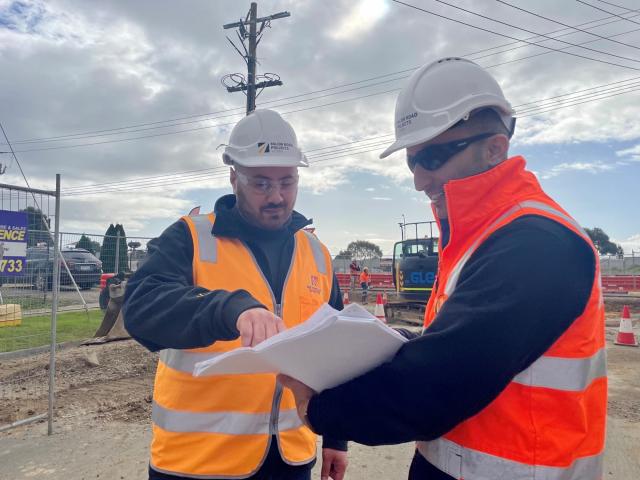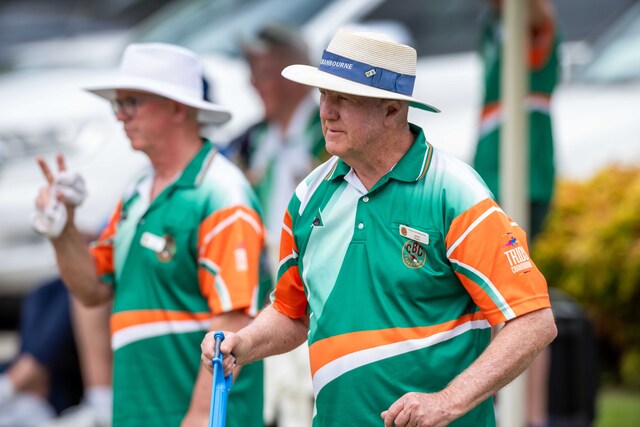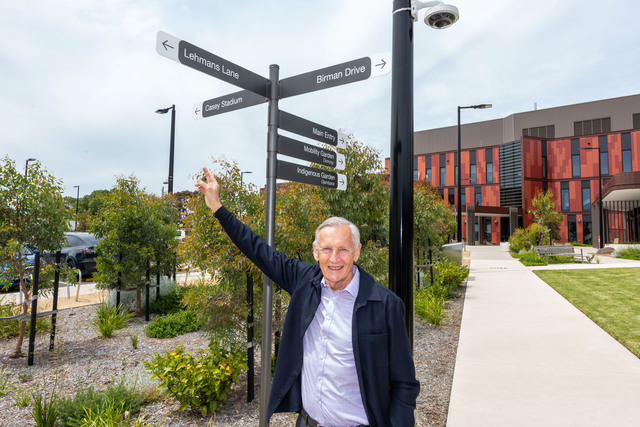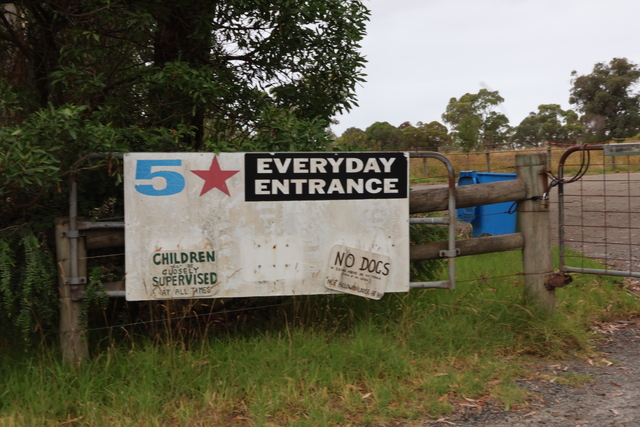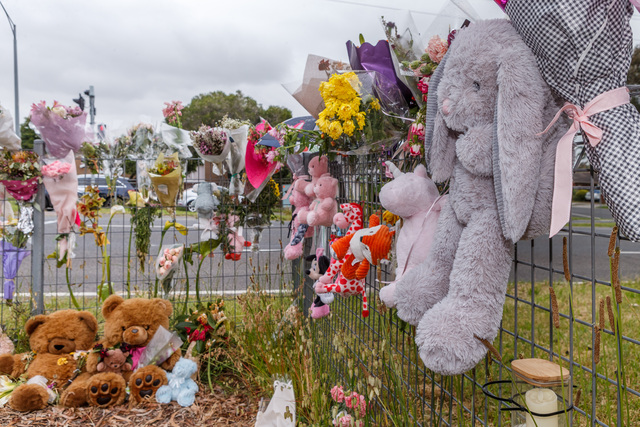A new program is helping former refugees and migrants realise their engineering dreams by providing cadetships across Major Roads Projects Victoria (MRPV) projects, including the Lathams Road and Pound Road West upgrades in Melbourne’s South East.
The Engineering Pathways Industry Cadetship (EPIC) Roads Program harnesses latent engineering talent and provides full-time employment to job-ready cadets across Major Transport Infrastructure Authority (MTIA) projects.
The industry-first program aims to bridge the gap faced by new Australians in matching their international qualifications to Australian workforce requirements.
Mohammad ‘Tariq’ Zia and Abdulwahed Salloum are graduate engineers working on the Lathams Road and Pound Road West Upgrades, respectively, and are just two of the 21 newly inducted cadets, including 16 across MRPV projects.
Growing up in Afghanistan, Mr Zia’s childhood ambition to be an engineer was inspired by a family relative working in the industry.
He was driven by his desire to contribute to the development of his country, by facing the challenge of modernising the infrastructure across Afghanistan.
Mr Zia remembered the prolonged war as a child but wasn’t directly impacted during his primary and high school years.
He pursued engineering after high school and graduated with a Bachelor of Civil Engineering from Dawat University in Afghanistan in 2015.
After graduating, he worked as a structure design engineer at the Ministry of Urban Development and Land of Afghanistan for around three years.
In 2018, he was a victim of an attack at the Ministry, where a bomb exploded in the employee carpark, killing and injuring many of his co-workers who were walking to their cars.
“Thankfully my car was parked around 50 metres away from the explosion and I was shielded by other vehicles… that day was one of the worst days of my life,” Mr Zia said.
“The war had its impacts directly and indirectly on everyone in Afghanistan, you never knew what was going to happen next and whether you could have been the next target.”
In June 2021 Mr Zia relocated to Australia under a humanitarian visa as threats from extremist groups continued building.
“During this time, I was searching for meaningful employment, so I can learn and grow my professional career,” he said.
He was successful in securing work helping Afghan refugees find employment.
However, the EPIC Roads Program presented an opportunity for Tariq to pick up engineering again, this time in Australia.
“Fortunately, I passed all my tests and interviews and secured a job with Winslow Infrastructure on the Lathams Road Upgrade.
“Engineering is my passion, and I am grateful I have found the EPIC program.
“There is a different standard of engineering between Afghanistan and Australia, but I am learning more and more every day and really enjoying myself.
“I have no words to describe how grateful I am for this opportunity.”
Mr Salloum’s love for building started 22 years ago in his home country, Syria, when he was gifted a Lego set for his 5th birthday.
While his family lived in Syria, he said his father was a physician and struggled to find work “because he was required to be part of the regime single party and he refused; joining the party would force him to become their soldier or spy.”
His family sought freedom by moving to Saudi Arabia.
When he finished school, he thought his engineering dream was over when he discovered expat dependants wouldn’t study at Saudi Arabian universities.
In pursuit of education, he studied at Malaysian and English universities, coming up against protracted Visa processes.
“I dreamed of working on infrastructure and that’s where my passion was… I arrived in Australia in 2018 full of hope that I would kick-start the career of my dreams,” Mr Salloum said.
“However, to my surprise, being a foreigner with no connections meant that working as an engineer was a hopeless endeavour.”
Mr Salloum’s Saudi Arabian Visa was cancelled, and he was “stuck” in Australia.
“I never stopped working and looked for every engineering opportunity possible; after four years my dream was beginning to fade,” he said.
His friends introduced him to the EPIC Roads Program and encouraged him to apply. “I owed to myself, to my family back home, to never ever give up.”
“It was guided by an amazing team that helped the candidates through the application journey.”
Mr Salloum was successful in becoming a Graduate Engineer with Seymour Whyte on MRPV’s Pound Road West Upgrade – an opportunity that he said helped him fulfil his dream.
All cadets receive on-the-job training, support and mentoring and complete a bespoke postgraduate Graduate Certificate in Infrastructure Engineering Management qualification, through Swinburne University.
The Graduate Certificate, combined with their international qualifications and the workplace experience they gain through the program, will kick-start their careers in engineering in Victoria.
“We’re delighted to be playing our part in helping qualified engineers from refugee or asylum seeker backgrounds navigate the barriers to paid employment, kick-starting their careers in major transport infrastructure projects,” Major Road Projects Victoria (MRPV) Project Director Marc Peterson said.
“By providing opportunities to entry-level site engineers like Tariq and Abdulwahed onto two of our biggest upgrades in Melbourne’s South East, we’re playing a small yet significant role in helping solve the industry’s growing need for site engineers.”
The paid cadetship will provide valuable local work experience and access to industry networks – addressing the barriers often faced by new Australians in accessing professional employment.

